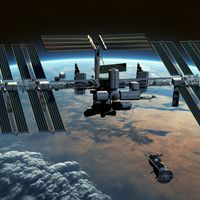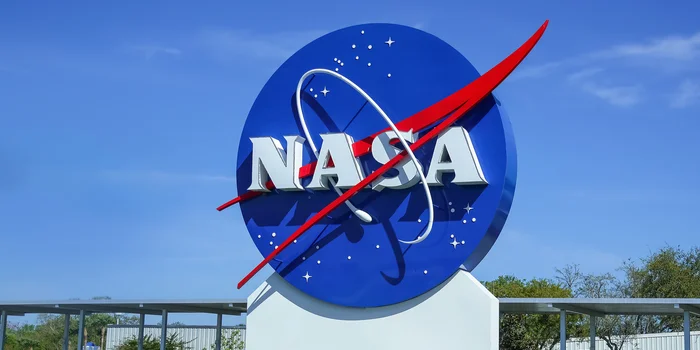
News + Trends
On 12 February, there will be a live tour of the ISS on Twitch
by Debora Pape


NASA wants to reach even more people around the world and is cooperating with Netflix to do so. Live streams, reports and more will soon be available there.
Space, infinite expanses. The year is 2025 and soon you will be able to stream live streams from the US space agency NASA directly on Netflix. These include rocket launches and space walks that astronauts complete on the International Space Station (ISS). You can also watch live views of Earth from the ISS. In addition, there will be reports and interviews on current NASA missions as well as documentaries on milestones and discoveries.
NASA announced the collaboration with Netflix in an announcement. It is due to start in summer «» . The content of NASA +, the agency's free and ad-free video-on-demand streaming service, will then be available to an even larger audience. Netflix reaches 700 million viewers worldwide, all of whom will have access to the videos.
Reaching the «largest possible audience» is one of the missions of the publicly funded NASA, as the head of the service, Rebecca Sirmons, explains. This was established when the agency was founded in 1958.
The NASA+ content can already be seen on the agency's own website and a specially developed app, as well as on numerous social media channels and other streaming services such as Apple TV and Fire TV. It was only in February that NASA broadcast a live ISS stream on Twitch for the first time, where mainly younger people and gaming enthusiasts watch.
The fact that NASA has recently endeavoured to make its projects and successes more accessible is no coincidence. After all, the government institution, which has long cultivated a dusty and bureaucratic reputation, is increasingly facing competition from private companies such as Elon Musk's Space X and Jeff Bezos' Blue Origin.
In addition, a first proposal from the US government for the 2026 annual budget envisages severe financial cuts for research institutions, including NASA. The USA spends around 25 billion dollars a year on its civilian space agency; in 2026, the NASA budget could be reduced by 6 billion dollars, around 24 per cent. This will allow NASA to focus more on its goals on the moon and Mars.


Feels just as comfortable in front of a gaming PC as she does in a hammock in the garden. Likes the Roman Empire, container ships and science fiction books. Focuses mostly on unearthing news stories about IT and smart products.
From the latest iPhone to the return of 80s fashion. The editorial team will help you make sense of it all.
Show all